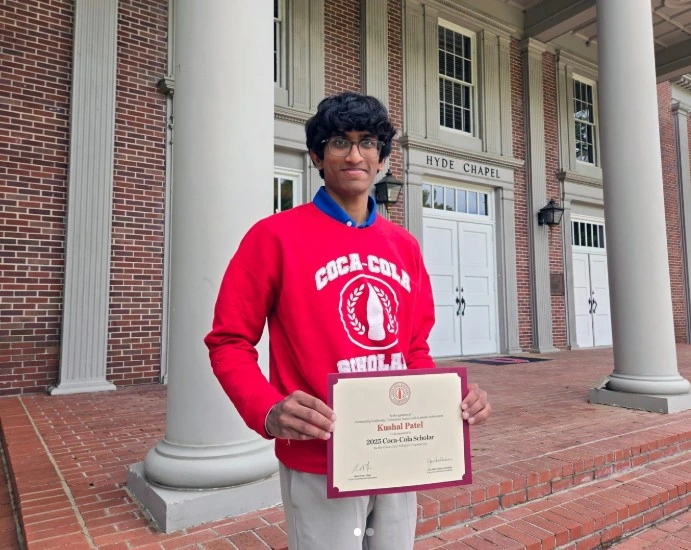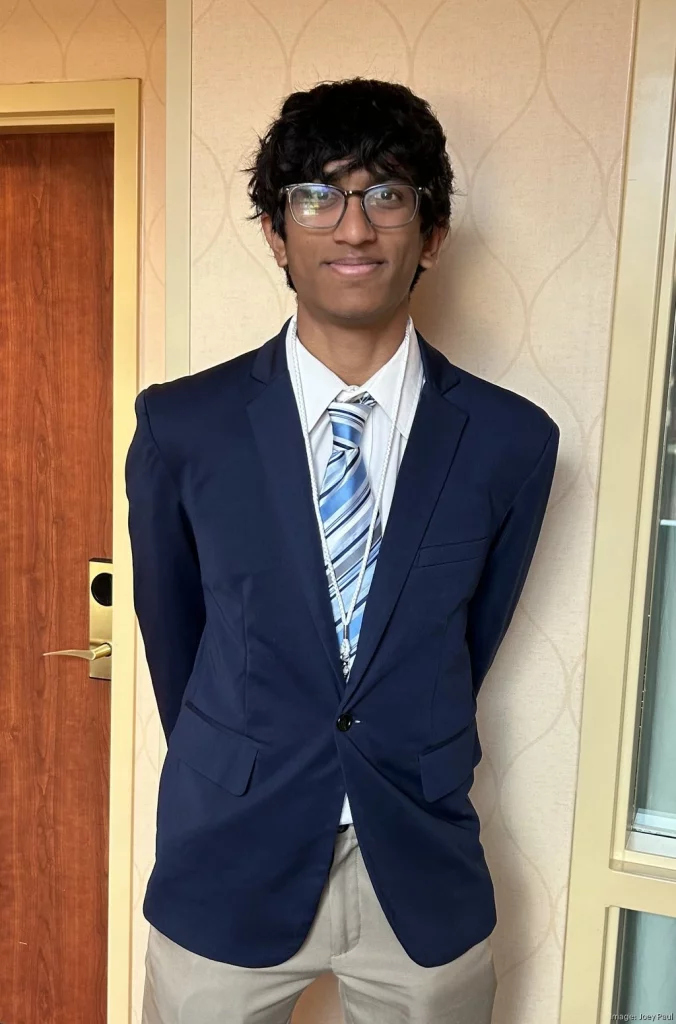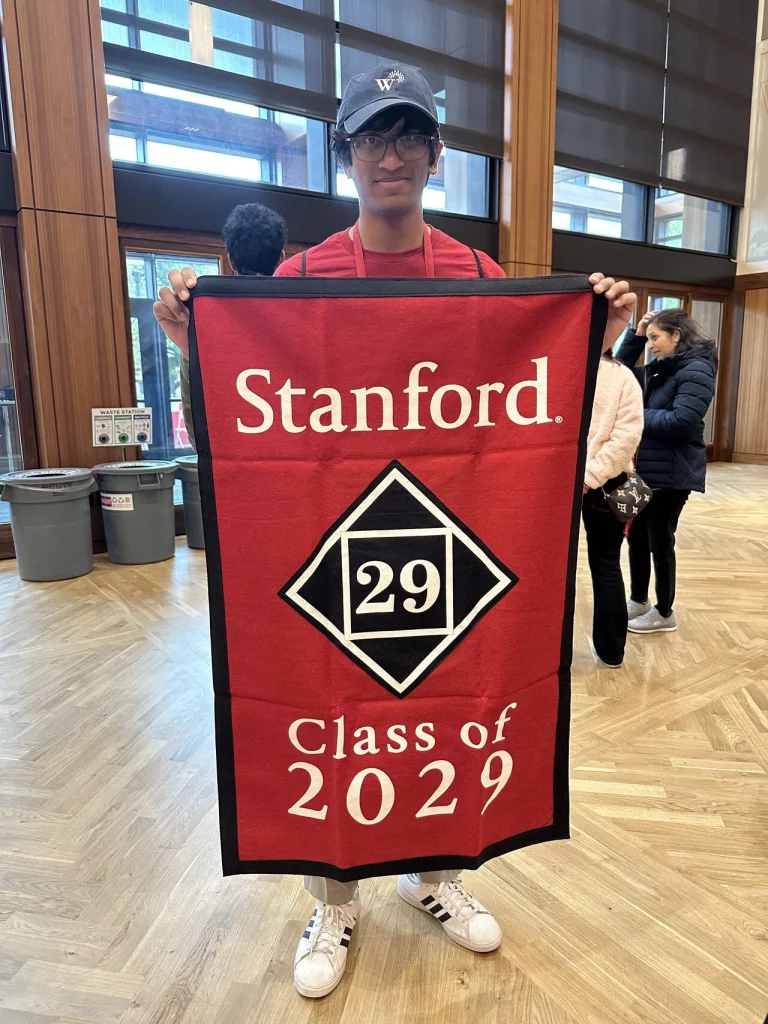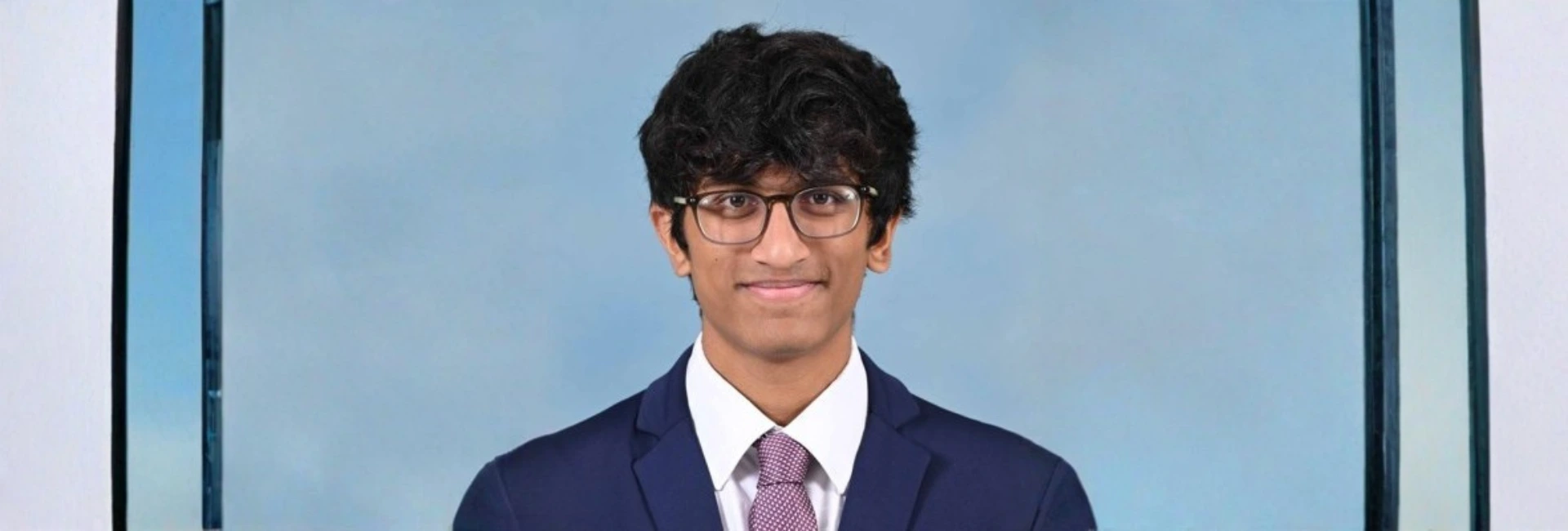(November 16, 2025) In the rural South, just beyond the outskirts of Memphis, a city in Shelby County, Tennessee, United States, where the Delta begins, healthcare access narrows with every mile. Entire counties operate without basic services, and solutions rarely come from within the communities most affected. But for Kushal Patel of Memphis, Tennessee, now a Stanford freshman studying Public Policy and Management Science & Engineering, those inequities have never been distant problems. They are the issues that shaped his adolescence, guided his advocacy, and continue to define the work he hopes to scale on a national level.
Before turning 19, Kushal had already built the region’s only student-led program supporting isolated elderly residents in the Mississippi Delta, published a policy review on rural social isolation, lobbied on K Street in Washington D.C., and co-founded a tech startup for blind accessibility that raised over $15,000 in competitions. His efforts earned him recognition as a Memphis Business Journal NextGen Leader, a Delta Directions Scholar, and a place among the 2025 Coca-Cola Scholars which led him to $20,000 merit-based scholarship.

Despite the spotlight, Kushal Patel keeps his journey grounded in gratitude. As he looked ahead to his first days at Stanford, he summed up his feelings by mentioning, “I’m beyond grateful (and honestly still a little surprised) to be starting this next chapter at Stanford. College admissions can feel full of uncertainty and randomness, so I don’t take this opportunity for granted.”
Understanding a region through service
Kushal Patel grew up minutes from the Mississippi border, in a city often described by its contrasts: world-class hospitals on one side, and some of the nation’s most underserved rural communities just beyond the county line. During his early high school years, he began volunteering in Northern Mississippi, where small nursing homes, often underfunded and understaffed, housed seniors who went months without a single visitor.
From that experience grew the Memphis Elderly Outreach Association, the only initiative specifically serving socially isolated seniors in the rural Delta. With two classmates, Patel organized biweekly visits, partnered with school clubs to deliver handwritten letters, and secured a grant from the Community Foundation of Memphis to host holiday celebrations and provide personalized gifts for residents who would have otherwise spent Thanksgiving or Christmas alone. The work showed him the human dimension of rural inequity.
Learning the system to change it
Kushal’s commitment to health equity deepened through policy, not as a distant academic interest, but as the infrastructure shaping the lives of the very people he met in Mississippi.
At Woodberry Associates, a healthcare consultancy on K Street in Washington D.C., he spent six weeks in public affairs researching drug-pricing policy, drafting congressional letters, taking notes at federal briefings, and writing op-eds on non-medical switching. He analyzed how insurance and pharmaceutical regulations trickle down into the communities that can least afford disruptions in care.
While working in D.C., he also wrote a full-length literature review examining the structural barriers like geographical, financial, and interpersonal that isolate elderly populations in the Delta. The paper, later published in The Scholarly Review, also broke down key sections of the Affordable Care Act and Older Americans Act, offering policymakers a consolidated analysis rooted in on-the-ground reality. This combination of direct service and policy fluency drew the attention of regional leaders.


Understanding the struggles of rural clinics
Through the Delta Directions consortium, which links Mississippi-based public health practitioners with major universities, Kushal collaborated on a capstone evaluating barriers faced by community health centers across the state. His policy research led him to Clarksdale, where he spent weeks at the Aaron E. Henry Community Health Center helping draft a $400,000 federal HRSA grant proposal to improve maternal and child healthcare coordination.
Although the grant was ultimately not awarded, the process sharpened his understanding of why rural clinics struggle to secure federal funding and why advocacy must work hand-in-hand with research. The setbacks, he notes, were often as instructive as the wins.
Solving a social need through Pathlight
If his outreach in Mississippi addressed the isolation of elderly residents,Kushal’s Patel’s initiative, Pathlight, stemmed from a different kind of access challenge: the navigation and social barriers faced by blind individuals.
Co-founded with two peers from North Carolina and Pennsylvania, Pathlight uses AI, computer vision, and the user’s retained photosensitivity to deliver directional cues through a lightweight visor. After constructing a proof-of-concept prototype and testing it with blind users, the team began winning pitch competitions including the Be More Grant and Penn State’s Young Entrepreneurs Challenge, ultimately raising over $15,000. Their work earned spots in two selective accelerators: UPenn’s Pennovation Works cohort and the National Science Foundation’s I-Corps Prep.
The team is now expanding Pathlight into a social-accessibility platform built to integrate with emerging AR hardware. At Stanford, Patel continues developing the next iteration with his co-founder on campus.
Recognition built on purpose
In 2025, Patel earned Coca-Cola Scholarship, one of the nation’s most competitive student honors, awarded to just 150 students out of more than 90,000 applicants. On receiving the news, he wrote: “I’m incredibly honored to share that I’ve been named a 2025 Coca-Cola Scholar! I’m grateful to the Coca-Cola Scholars Foundation for this honor and to my family, friends, and mentors who have supported me every step of the way.”
The Coca-Cola Scholars Foundation amplifies the impact of exceptional young leaders through scholarships, a powerful community of mission-driven changemakers and an opportunity of life-long learning. The 2025 awardees joined over 7,000 distinguished alumni recipients. The process involved several selection rounds, essay composition, and personal interviews.


Now, in his life’s new chapter at Stanford, Kushal Patel plans to expand his understanding of healthcare systems, engineering, and policy. But the mission remains unchanged.
- Follow Kushal Patel on LinkedIn
ALSO READ: Archika Dogra: From Forbes 30 Under 30 to Spirit of Princeton Award




